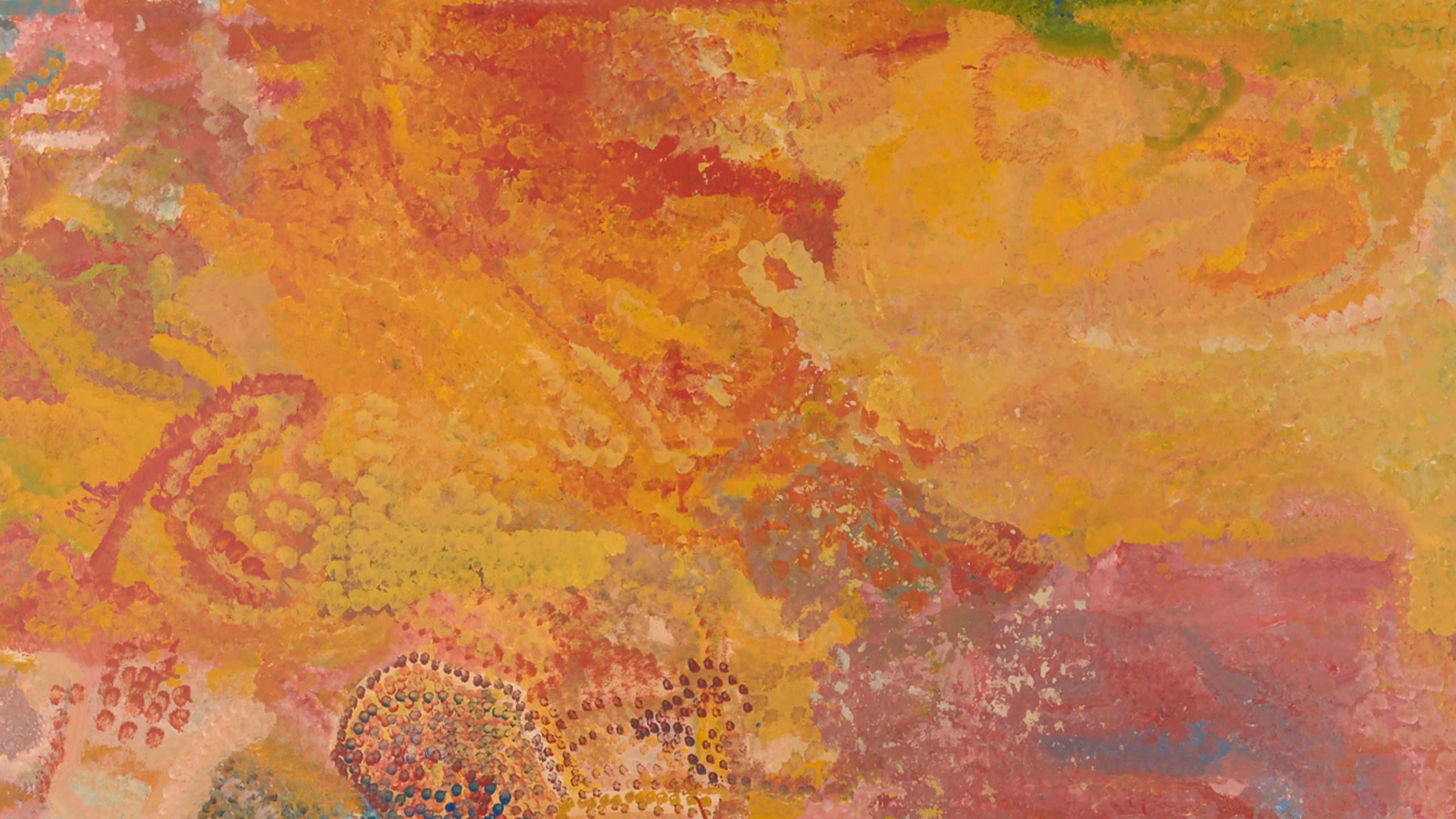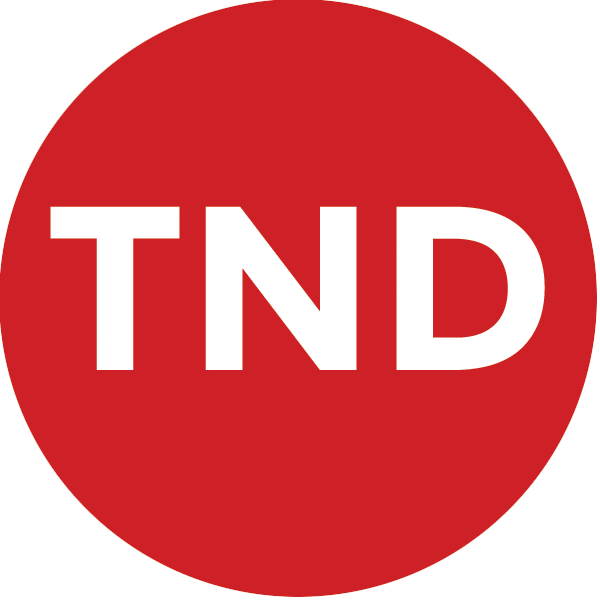

By Lucie Morris-Marr
High profile Indigenous Australians have shared their sadness over the majority No vote result in the Voice to Parliament referendum.
For several months well-known figures opened up about their lives in our special weekly interview series - Raising Voices.
All 13 interviewees revealed varied views and highly differing childhood experiences with The New Daily, but many are now united in sharing the same common sentiments of anger and disappointment.

A woman reacts during a speech by Campaign Director of Yes 23 Dean Parkin at the Inner West for 'Yes2023' official referendum function at Wests Ashfield Leagues Club on October 14, 2023 in Sydney, Australia. Photo: AAP
A woman reacts during a speech by Campaign Director of Yes 23 Dean Parkin at the Inner West for 'Yes2023' official referendum function at Wests Ashfield Leagues Club on October 14, 2023 in Sydney, Australia. Photo: AAP
Olympian Benn Harradine said the result, which saw six states in Australia cast a No vote majority, wasn’t just disappointing but also “frightening.”
“Whilst I respect the process of democracy, and that the majority of Australia voted against the Voice, it does not mean that we, as First Nations people who chose to vote Yes, do not have the right to feel disappointed and disheartened.”
Harradine pointed to certain sections of the media for causing a divide.
“From my personal standpoint it has not only been the result that was disappointing but the rhetoric evident on various platforms and media outlets that has revealed an alarming divide in the Australian population in relation to First Nations people,” he said.
“Hearing how people resonate openly, ill informed and afraid has been particularly frightening.”

"Vote No" volunteers at a polling centre on October 13, 2023 in Canberra, Australia. Photo: Getty
"Vote No" volunteers at a polling centre on October 13, 2023 in Canberra, Australia. Photo: Getty
Harradine and his wife Jennie Johansson – a former world champion Swedish swimmer and herself a Sami Indigenous Scandinavian – primarily live in Sweden.
But they also spend extended periods living with family in his home town of Newcastle, NSW, with their son Sixten, who is nearly two.
Asked why he believed the No camp had won he speculated that perhaps Australia “is not ready to grow” in terms of inclusion.
“My overall hypothesis however is that people voted out of fear.
“The themes I read about were deeply emotive, with little guidance on the rational.
“Sadly this is often how campaigns work today.
“It was difficult to find reason and understanding on what the true rationale was behind the voice, and therefore it was difficult for people to make informed decisions.
“If a democracy is going to be stable and strong, it requires followers who are educated and engaged and just as importantly our leaders need to be educated and morally grounded.”

The Aboriginal and Torres Strait Island flags fly in Canberra. Photo: AAP
The Aboriginal and Torres Strait Island flags fly in Canberra. Photo: AAP
A proud Wotjobaluk/Wergaia man of the Wimmera, Harradine became the first Indigenous athlete to represent Australia in an Olympic field event at the 2008 Games in Beijing. He went on to win a gold medal at the 2010 Commonwealth Games in Delhi.
In regards the future he said even thought he’s alarmed by the result, he isn’t afraid.
“Leadership is hard, communication is even harder. It’s easy to have hope because I know that there are many great leaders who create real impact.
“First Nations people do not need permission to take place in society. So we accept the vote, and we keep moving forward.”

Campaign signs are seen outside the voting centre at Old Parliament House in Canberra, Saturday, October 14, 2023. Photo: AAP
Campaign signs are seen outside the voting centre at Old Parliament House in Canberra, Saturday, October 14, 2023. Photo: AAP
Meanwhile, Djaran Murray-Jackson, North West Member of the First People's Assembly of Victoria, told The New Daily about the moment he realised his hopes for a Yes majority vote were lost while watching the results early on Saturday evening.
“I was on the couch watching the votes come in and once I saw that Tasmania and NSW weren't getting up I was gutted,” he said.
“With that being said I was still hopeful that Victoria would be yes but again I was disappointed.”

Ballot papers are seen at a counting centre in Melbourne, Saturday, October 14, 2023. Photo: AAP
Ballot papers are seen at a counting centre in Melbourne, Saturday, October 14, 2023. Photo: AAP
The 29-year-old revealed he had attended two community smoking ceremonies in the Melbourne area since the result, which he believed were uplifting for those who attended.
“I believe we need to heal through ceremony and smoke all of the bad energy from this whole ordeal out of us.
“But once we have done that it's time to re-group and double down on our fight for truth and justice.
"The No result has just proven that most of Australia is still asleep when it comes to Indigenous people and our history. I hope once we have recovered and debriefed from this the fire in our bellies ignite and we keep pushing for Voice, Treaty and Truth.”
Murray-Jackson said he believed there needs to be further education about the past history of Indigenous Australians.
“Throughout the whole campaign I was having lots of constructive conversations with a lot of people, some of which don’t even understand the Stolen Generation, the missions or that there were massacres in this country.
“This tells me that schools haven’t been teaching the proper truth and that Australia still has a lot to learn.
“With that being said there is still a lot of good will and allies around, I met heaps through doing door knocking, phone banks and just conversations with people who wanted to learn more.”

Leading Yes campaigner Thomas Mayo is interviewed at the Inner West For Yes2023 Official Referendum Function at Wests Ashfield Leagues Club on October 14, 2023 in Sydney, Australia. Photo: Getty
Leading Yes campaigner Thomas Mayo is interviewed at the Inner West For Yes2023 Official Referendum Function at Wests Ashfield Leagues Club on October 14, 2023 in Sydney, Australia. Photo: Getty
One Raising Voices interviewee who spent months knocking on doors and making key note speeches for the Yes23 campaign was author and activist Thomas Mayo.
He spoke passionately of his hopes for the Voice to Parliament during his interview in August with The New Daily.
The father of five children – Shayla, 26, Tiah, 25, Celestino, 23, William, 12, and Ruby, 10, – revealed he wasn’t able to see them, or his wife Melanie, for weeks on end while he tried to “educate the public and explain why the Voice is so important”.
However, Mr Mayo told ABC News on Saturday night he was "devastated" by the Yes majority result and maintained his support for the Voice proposal.
"I think that the proposal that we have made is the right one. We need a Voice, we need that structural change and we got it right at Uluru," he said.
"But we have seen a disgusting No campaign, a campaign that has been dishonest, that has lied to the Australian people, and I'm sure that will come out in the analysis.
"I'm sure that history will reflect poorly on [Opposition Leader] Peter Dutton, [One Nation leader] Pauline Hanson [and] all of those that have opposed this."
Mr Mayo later joined other high-profile Indigenous Australians, including Raising Voices interviewees Rachel Perkins and Jakirah Telfer, in declining media interviews for a week.
Described as “A Week of Silence” a statement issued across social media said it was needed to to “grieve this outcome and reflect on its meaning and significance.”
“We will be lowering our Aboriginal and Torres Strait Islander flags to half mast for the week of silence to acknowledge this result.
“We ask others to do the same.”
This is part of a special series of interviews by The New Daily about the 2023 referendum on the Indigenous Voice. Read the other interviews here.
